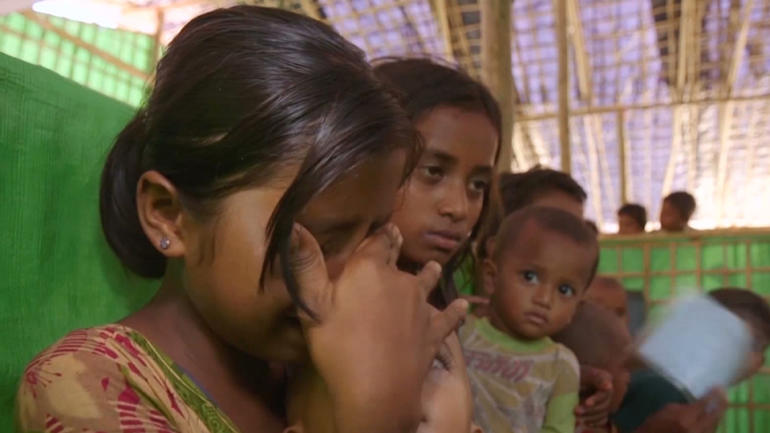The United Nations says one-third of the world’s women will experience sexual or physical violence at some point in their lives. On Monday, the organization focused attention on the issue with the International Day for the Elimination of Violence Against Women.
CGTN’s Nick Harper reports from U.N. Headquarters.
Belle Austin said her partner beat her multiple times over several months, leaving her with bruises and black eyes. She believes education is vital to change the pervasive nature of violence in society.
“We teach children to brush their teeth, to eat well and so on but we don’t say anything about relationships between men and women, and the possible power dynamic between men and women,” Austin said.
The United Nations estimates one in three women experience physical or sexual violence during their lifetime. On Monday, the UN marked the International Day for the Elimination of Violence Against Women. It focused on the rape culture the U.N. said surrounds us because of attitudes that go unquestioned.
“There really is a culture and an acceptance around rape and around sexual violence that we need to address,” said the Deputy Director of UN Women, Anita Bhatia. “It is almost normalized, and we need to address mindsets, attitudes, culture, laws and policies to end violence against women.”
This year the U.N. is also highlighting the lengths women have to go to in protecting themselves, showing the everyday objects many rely on to stay safe. Sexual violence against women is a problem everywhere, in conflict zones, where rape can be used a weapon of war, but also on streets in developed nations where women can face unwanted attention, catcalls and abuse on a daily basis.
The New York City Alliance Against Sexual Assault offers a rape crisis helpline that assists survivors with counseling. It also runs an education program for school children, in hopes of changing attitudes in the next generation.
“How can we cure this, how can we fix these systemic problems, because they are systemic problems,” said Alexandra Zeitz-Moskin, of the New York City Alliance Against Sexual Assault. “Although there are individual bad actors, not everyone who commits these crimes are sociopaths, who must be taught how to empathize. There has to be a next step of how can we reconcile that.”
Global movements like the #MeToo movement are beginning to hold men accountable for sexual assault. But the UN argues, that unless root causes like cultural attitudes are addressed, violence against women is unlikely to be eliminated.
 CGTN America
CGTN America

